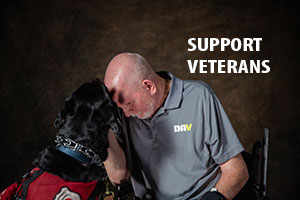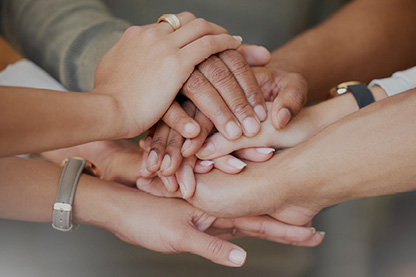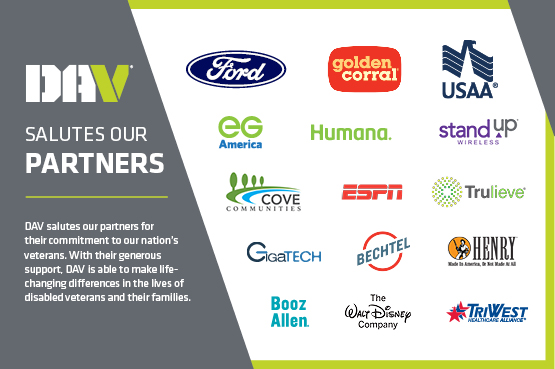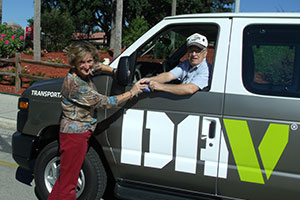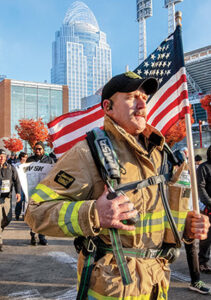Are there legally blind benefits for veterans?
What level of visual impairment is considered legally blind?
According to the American Foundation for the Blind, this refers to a medically diagnosed central visual acuity of 20/200 or less in the better eye with the best possible correction, and/or a visual field of 20 degrees or less. But it is often the case that people who are diagnosed with legal blindness still have some usable vision.
- 20/30 to 20/60 is considered mild vision loss, or near-normal vision
- 20/70 to 20/160 is considered moderate visual impairment, or moderate low vision
- 20/200 to 20/400 is considered severe visual impairment, or severe low vision
- 20/500 to 20/1,000 is considered profound visual impairment, or profound low vision
- More than 20/1,000 is considered near-total visual impairment, or near total blindness
- No light perception is considered total visual impairment, or total blindness
How can veterans be service-connected for visual impairments?
Veterans can speak with a DAV benefits advocate to determine if his or her vision loss is related to service. These experts will assist in filing a claim for disability compensation through the Department of Veterans Affairs, helping the veteran access earned benefits and health care through the VA.
DAV benefits advocates can also assist veterans who already have an established VA disability rating but find their service-connected vision loss is worsening over time.
What services will the VA provide for blind veterans?
Blind veterans may be eligible for services at a VA Medical Center or for admission to a VA blind rehabilitation center or clinic. Services are available at all VA medical facilities through the Visual Impairment Services (VIST) Coordinator.
Aids and services for blind veterans include:
- A total health and benefits review by a VA Visual Impairment services team
- Adjustment to Blindness Training
- Home improvements and structural alterations to homes
- Specially adapted housing and adaptations
- Low vision aids and training in their use
- Electronic and mechanical aids for the blind, including adaptive computers and computer-assisted devices such as reading machines and electronic travel aids
- Talking books, tapes and Braille literature
- Supporting veterans in identifying sources for guide dogs and in completing application process to obtain a guide dog, assist with expenses of training the veteran to use the dog and the cost of the dog’s medical care as provided for in VHA policy and regulation
The VA has a number of Blind Rehabilitation Centers to help veterans achieve a realistic level of independence in skill areas including communication, mobility, daily living, manual and visual, computer access and social/recreational. Additionally, the VA will help veterans make emotional and behavioral adjustments to vision loss through appropriate counseling or group therapy.
To learn more, veterans can call the Blind Rehabilitation Service Program office by phone at
202-461-7317 to learn more, or contact the VIST coordinator at the VA medical center near you.
What is the VA policy on guide dogs?
Veterans enrolled in VA health care may be eligible for a guide/service dog. A referral should be made to a specialist by the veteran’s primary care provider. The veteran’s VA medical team will perform a complete clinical evaluation to determine how best to assist the veteran. Each working dog request is reviewed and evaluated on a case-by-case basis.
Will VA pay for guide dogs?
There is no charge to veterans for the dog or the associated training. While the VA does not provide guide dogs, it coordinates with accredited non-VA agencies that do dogs. Once a veteran becomes proficient using their guide dog, the dog will becomes property of the veteran.
It’s important to note which expenses associated with owning a guide dog are covered through VA Prosthetics and Sensory Aids.
The VA will pay for veterinary care and the equipment (e.g. harness and/or backpack) required for optimal use of the dog. Veterinary care includes prescribed medications, office visits for medical procedures, and dental procedures where the dog is sedated (one sedated dental procedure will be covered annually). Vaccinations should be current when the dog is provided to the veteran through an accredited agency. Subsequent vaccinations will be covered by the VA. Prescribed food will be reviewed on a case-by-case basis.
Veterinary care does not include over-the-counter medications, food, treats and non-sedated dental care. Flea and tick medications are considered over-the-counter and are the responsibility of the veteran along with over-the-counter dental care products (bones, dental treats, etc.). Grooming, boarding and other routine expenses are not covered.
What does DAV do for blind veterans?
DAV is a proud co-sponsor of the National Disabled Veterans Golf Clinic held annually in Iowa City, Iowa.
The TEE Tournament is a week-long adaptive golf program that promotes rehabilitation by instructing veterans with visual impairments and other life-changing disabilities in adaptive golf and other adaptive sports.
Participation is open to male and female military service veterans with qualifying disabilities such as visual impairments, amputations, traumatic brain injuries, psychological trauma, certain neurological conditions, spinal cord injuries and other severe life changing disabilities. All disabilities are subject to review by the National Disabled Veterans TEE Tournament Medical Director and Program Director.
Additionally, DAV’s Blind Veterans National Chapter is a unique chapter for veterans with sight loss to connect and enjoy camaraderie with others who share similar experiences.
What resources are available to learn more?
Blinded Veterans Association
American Foundation for the Blind
National Library Service for the Blind and Physically Handicapped (free Braille and talking library service)

